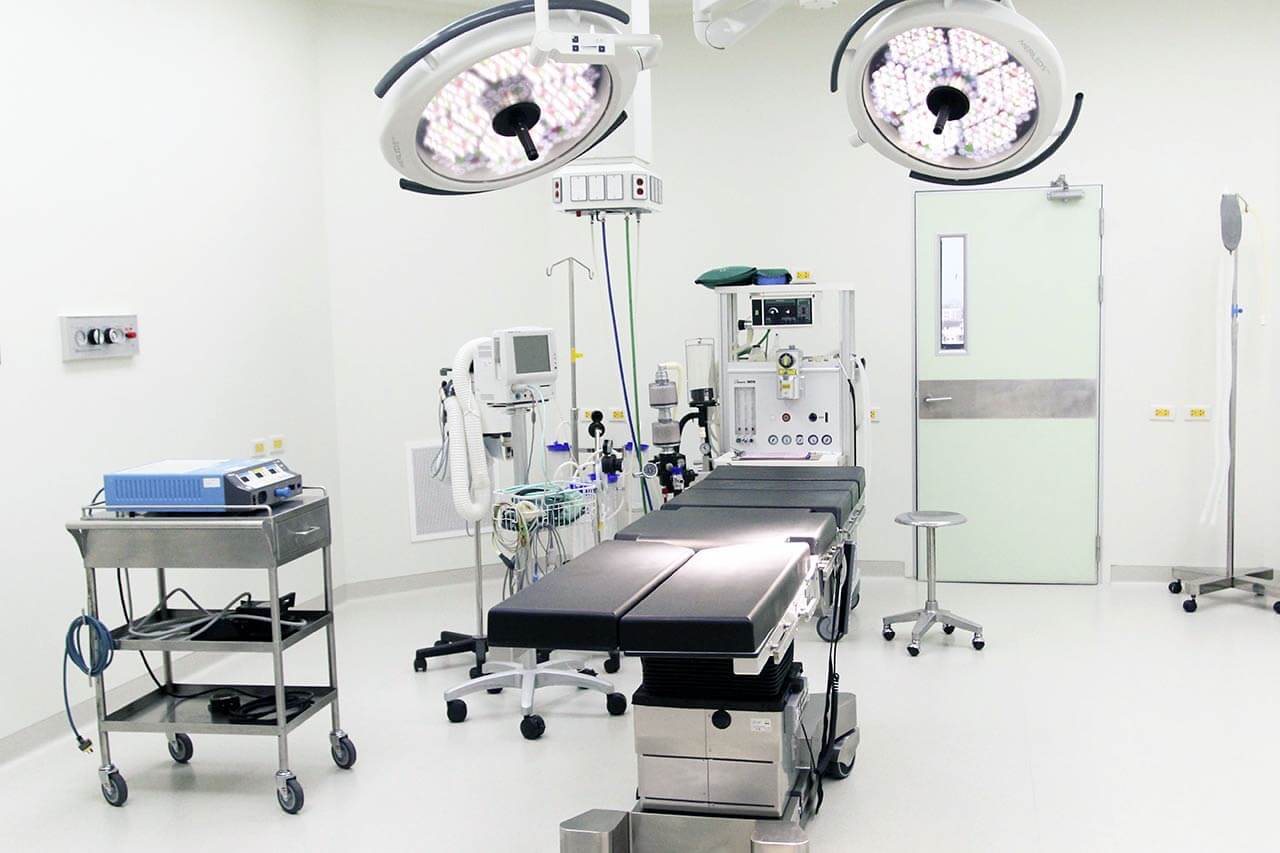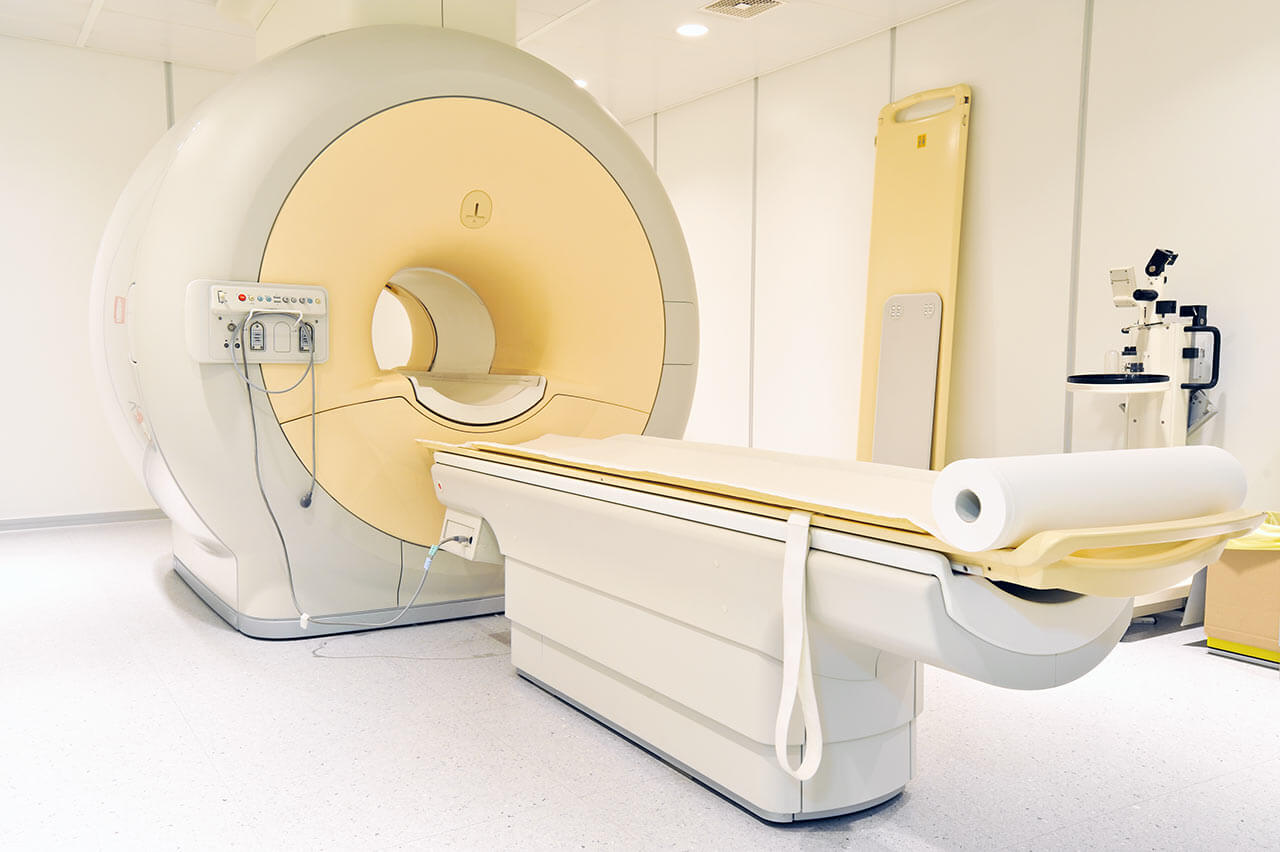
The program includes:
- Initial presentation in the clinic
- clinical history taking
- review of medical records
- physical examination
- laboratory tests:
- complete blood count
- biochemical blood test
- inflammation markers (CRP, ESR)
- blood coagulation analysis (aPTT, PT, INR)
- ultrasound of the abdomen
- gastroscopy with H.pylori test, biopsy
- nursing services
- consultation of related specialists
- treatment by chief physician and all leading experts
- explanation of individual treatment plan
Required documents
- Medical records
- Esophagogastroduodenoscopy (EGD) (if available)
Service
You may also book:
 BookingHealth Price from:
BookingHealth Price from:
About the department
The Department of Pediatric and Adolescent Medicine at the Hospital Schwabing Munich offers the full range of services for the diagnostics and treatment of various diseases in children. The department admits children of all age groups, ranging from premature babies weighing 500 grams to adolescents under the age of 18 years. The advanced medical and technical base, as well as long clinical experience of pediatricians allow them to offer young patients the most effective therapy using the latest medical advances. The department provides treatment of all possible diseases in children: malignant solid tumors, leukemias, diabetes mellitus, cardiovascular diseases, endocrine diseases, infectious diseases, allergies, diseases of the lungs, gastrointestinal tract and liver, nervous system, kidneys, as well as immunodeficiency disorders. The department admits annually more than 5,000 young patients and about 1,500 children receive therapy within a day hospital. Medical care meets the strictest requirements of professional pediatric societies and current clinical protocols. The department is headed by Prof. Dr. med. Stefan Burdach.
The department is proud of its outstanding success in the treatment of malignant solid tumors, diseases of the hematopoietic system and bleeding disorders. The department's specialists most often have to deal with the treatment of leukemias, lymphomas, myelodysplastic syndrome, congenital bone marrow failure, hemoglobinopathies, immune thrombocytopenia, bone and soft tissue sarcomas (Ewing's sarcoma, osteosarcoma, rhabdomyosarcoma), histiocytosis, etc. The treatment can take place on an inpatient or outpatient basis. The main therapeutic options of the department in this field include chemotherapy, radiation therapy, targeted therapy and bone marrow transplantation. Since such a diagnosis as cancer is always a huge challenge for a child and his family, the patient and his relatives can also receive psychological care from highly qualified specialists.
The treatment of cardiovascular diseases in children is also one of the priority areas of the department's work. Specialization includes the treatment of congenital and acquired heart diseases. Of particular interest is the treatment of congenital heart defects, arrhythmias, arterial hypertension, myocardial infectious diseases, syncopes and other pathologies. The department's pediatric cardiologists provide exclusively conservative treatment. The interventional catheter procedures and surgical treatment are carried out in cooperation with the German Heart Center Munich, which has state-of-the-art equipment and highly qualified staff for effective and safe treatment. In addition, the department has modern diagnostic equipment for detection of congenital heart defects at the stage of prenatal development.
The department's pediatric endocrinologists offer young patients preventive measures, screening tests, as well as diagnostics and treatment of hormonal imbalances. It should be noted that the department is one of the few highly specialized medical facilities in all of Bavaria with the focus on pediatric endocrinology. The department's doctors specialize in the diagnostics and treatment of growth disorders, disorders of sexual development, calcium and phosphorus metabolic disorders, excess body weight and obesity, thyroid, adrenal and pituitary diseases. Endocrine disorders are treated with the advanced drugs, which the department's specialists prescribe only on an individual basis, taking into account the particular clinical indications of the young patient.
The department's medical team is also competent in the diagnostics and treatment of diseases of the nervous system. Epilepsy is one of the most common neurological disorders in children. It should be noted that the department is certified by the German Society for Epileptology and offers patients many innovative treatments for this pathology, which are available only in the best medical facilities in Germany. In addition to drug therapy using innovative medicines, the department's specialists have vast experience in the application of the ketogenic diet. The ketogenic diet allows the patient to achieve excellent results and significantly reduces the occurrence of epileptic seizures. In addition, the department successfully uses vagus nerve stimulation. It also provides effective treatment for many other neurological pathologies, including multiple sclerosis, mitochondriopathies, cerebral palsy, intellectual and cognitive developmental disorders, neurovascular diseases, neurometabolic diseases, hydrocephalus.
The department's range of medical services includes:
- Diagnostics and treatment of cancers
- Solid tumors
- Leukemias
- Lymphomas
- Myelodysplastic syndrome
- Congenital bone marrow failure
- Hemophagocytic lymphohistiocytosis
- Langerhans cell histiocytosis
- Hemoglobinopathies
- Immune thrombocytopenia
- Bleeding disorders
- Diagnostics and treatment of allergic diseases, lung diseases
- Allergic rhinitis
- Allergies to bee and wasp venom
- Food intolerance
- Neurodermatitis
- Bronchial asthma
- Chronic cough
- Rare congenital or acquired lung diseases
- Diagnostics and treatment of diabetes mellitus in children
- Diagnostics and treatment of cardiovascular diseases
- Congenital heart defects
- Arrhythmias
- Sudden dizziness, syncopes and thoracic pain
- Arterial hypertension
- Inflammatory heart disease (myocarditis, endocarditis and pericarditis)
- Cardiovascular lesions due to systemic diseases
- Diagnostics and treatment of endocrine disorders
- Growth disorders
- Puberty disorders and disorders of sex differentiation
- Obesity
- Thyroid diseases
- Adrenal diseases
- Pituitary diseases
- Calcium and phosphorus metabolic disorders
- Diagnostics and treatment of infectious diseases
- Diagnostics and treatment of diseases of the gastrointestinal tract, liver
- Acute and chronic vomiting, stool disorders, malabsorption, abdominal pain
- Food intolerance
- Lactose and fructose intolerance
- Lipid metabolism disorders
- Obesity and overweight
- Acute and chronic liver diseases (hepatitis, metabolic disorders, care for children before and after liver transplantation)
- Pancreatitis and exocrine pancreatic insufficiency
- Short bowel syndrome in case of home parenteral nutrition
- Chronic inflammatory bowel disease (ulcerative colitis and Crohn's disease)
- Celiac disease
- Gastroesophageal reflux disease
- Diagnostics and treatment of neurological disorders
- Epilepsy
- Multiple sclerosis
- Mitochondrial diseases
- Cerebral palsy and movement disorders
- Disorders of intellectual and cognitive development
- Neurovascular disorders, including strokes in children
- Hydrocephalus
- Tuberous sclerosis complex
- Neurocutaneous syndromes
- Diagnostics and treatment of kidney diseases
- Chronic and acute kidney failure
- Kidney dysfunction
- Arterial hypertension caused by kidney diseases
- Hematuria
- Proteinuria
- Congenital malformations of the kidneys and urinary tract
- Diagnostics and treatment of immunodeficiency disorders
- Hypogammaglobulinemia
- Louis-Bar syndrome
- Chronic granulomatous disease
- Hyper IgE syndrome
- DiGeorge syndrome
- Severe combined immunodeficiency
- Severe chronic neutropenia
- Wiskott-Aldrich syndrome
- Different types of immune dysregulation
- Diagnostics and treatment of cystic fibrosis (within the specialized outpatient hospital)
- Diagnostics and treatment of other diseases in children
Curriculum vitae
Professional Career
Prof. Dr. med. Stefan Burdach is the Head of the Department of Pediatric and Adolescent Medicine at the Hospital Schwabing Munich. He is also Professor in the Department of Pediatric and Adolescent Medicine at the Technical University of Munich.
From 1978 to 1983, Prof. Burdach underwent specialized training at the Children's Hospital in Cologne, as well as at the
Dana-Farber Cancer Institute of the Harvard Medical School in Boston. During his professional clinical training, pediatric oncology was of particular interest to him. The Professor received a scholarship from the German Research Foundation (1984-1987) for the research project on hematopoietic stem cells at the Stanford University Medical Center. This was followed by work at the Fred Hutchinson Cancer Research Center in Seattle where Dr. Stefan Burdach was trained in stem cell transplantation by the Nobel Prize winner Donnall Thomas.
In 1987, Prof. Burdach went to Duesseldorf to open a Laboratory for Experimental Hematology and Stem Cell Transplantation with colleagues and to initiate a Stem Cell Transplantation Program. In general, the specialist worked in Duesseldorf from 1987 to 1997. His last position was Deputy Chief Physician of the Center.
In 1997, he was appointed Head of the Department of General Pediatrics at the Martin Luther University Halle-Wittenberg. With the support of the German Cancer Aid, Prof. Burdach founded a regional Cell and Gene Therapy Center. In 2003, he became the Professor in the Department of Pediatric and Adolescent Medicine at the Technical University of Munich.
Research Activities
For nearly 25 years, Prof. Stefan Burdach has consistently proven to be an outstanding researcher. He made a major contribution to the treatment of cancer in children, in particular to stem cell therapy, immunotherapy and selective molecular therapy for tumors. Prof. Burdach is a prominent member of translational research and a role model for young scientists.
Clinical Interests
Prof. Stefan Burdach is mainly specialized in pediatric oncology and hematology – treatment of congenital blood diseases, leukemias and malignant tumors.
Awards and Honors
For his outstanding research activities, Prof. Burdach received numerous prestigious awards and honors, including the Hill Memorial Award from Stanford University, the Heynen Prize from Heinrich Heine University Duesseldorf, and the Kind Philipp Prize of the German Society for Pediatric Oncology and Hematology (GPOH).
Photo of the doctor: (с) München Klinik Schwabing
About hospital
The Hospital Schwabing Munich is one of the oldest medical facilities in the Schwabing region with a history of over 100 years. The hospital is proud of the excellent state-of-the-art equipment, modern infrastructure, highly professional medical personnel and location in a picturesque park area. The medical complex is the academic hospital of the University Hospital of Ludwig Maximilian University of Munich and the University Hospital Rechts der Isar Munich, therefore, it offers unique innovative diagnostic and treatment methods. The treatment can be provided both on an inpatient and outpatient basis. The work of the medical center is based on an individual approach to each clinical case, as well as on the strictest adherence to high standards of quality, hygiene and safety.
The hospital has a large number of beds for patient hospitalization – more than 700 beds. The medical facility admits over 125,000 patients for diagnostics and treatment, and this figure grows steadily every year, which indicates the authority of the hospital not only in the region, but also throughout the country. In addition, the medical center often admits foreign patients for medical treatment.
The hospital presents almost all the main areas of modern medicine, including oncology, surgery, gynecology, gastroenterology, endocrinology, diabetology, otolaryngology, pulmonology, thoracic surgery, orthopedics, traumatology, neurosurgery, etc. In addition, the specialists of the hospital admit young patients for treatment, providing them with proper medical care.
Particular attention should be given to the competent team of doctors who have vast clinical experience, thanks to which they provide patients with effective treatment even in particularly complex clinical cases. According to the prestigious Focus magazine, many doctors of the clinic have been repeatedly ranked among the best German specialists. The experts also take care of the patients' comfort during treatment, surround them with care and show a humane attitude, supporting patients on their way to recovery.
Photo: (с) depositphotos
Accommodation in hospital
Patients rooms
The patients of the Hospital Schwabing Munich live in comfortable single, double and triple rooms with a modern design. The patient rooms have everything necessary for maximum comfort of patients. Each patient room has an ensuite bathroom with shower and toilet. All patient rooms are equipped with a telephone, which is available for an extra fee via a special card. The standard room furnishings include an automatically adjustable bed, a bedside table, a wardrobe, a table and chairs for receiving visitors. Wi-Fi is also available in the patient rooms.
If desired, the patient can stay in the enhanced comfort patient room, which additionally includes a safe, a minifridge and upholstered furniture.
The hospital also has a library with a large assortment of books, magazines, CDs and DVDs, a shop, a hairdressing saloon and a cafe where the patient can enjoy tasty snacks or a cup of hot tea, aromatic coffee and soft drinks.
Meals and Menus
The patients of the hospital are offered tasty and healthy three meals a day: breakfast, lunch and dinner. All dishes are cooked from fresh food available in the region. Breakfast and dinner are served buffet style, while for lunch the patient has a choice of three menus.
If you are on a specific diet for some reason, you will be offered an individual menu. Please inform the medical staff about your dietary preferences prior to the treatment.
Further details
Standard rooms include:
Religion
The religious services are available upon request.
Accompanying person
During the inpatient program, the accompanying person can live with the patient in a patient room or a hotel of his choice. Our managers will help you choose the most suitable option.
Hotel
During the outpatient program, the patient can stay at the hotel of his choice. Our managers will help you choose the most suitable option.




